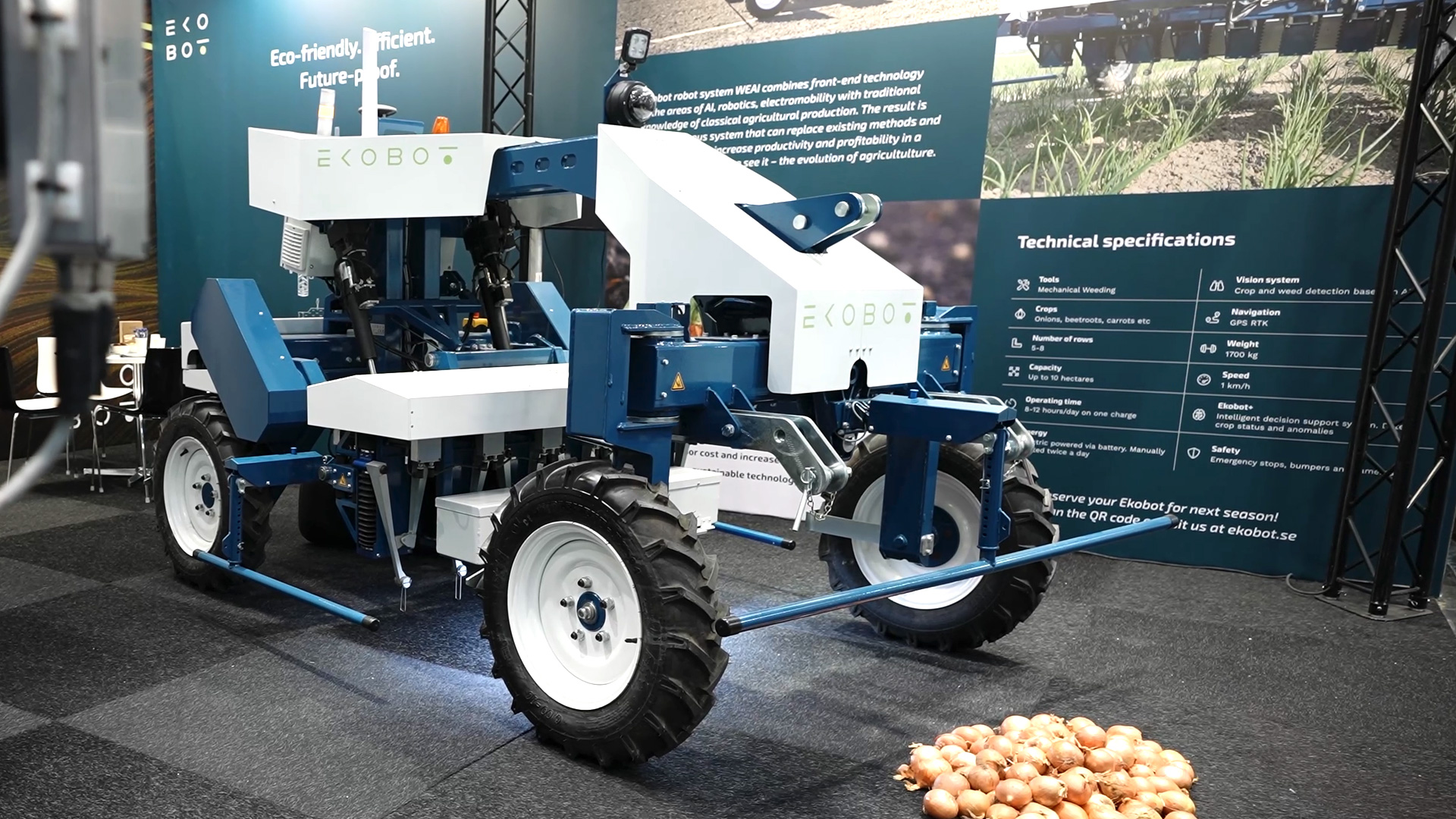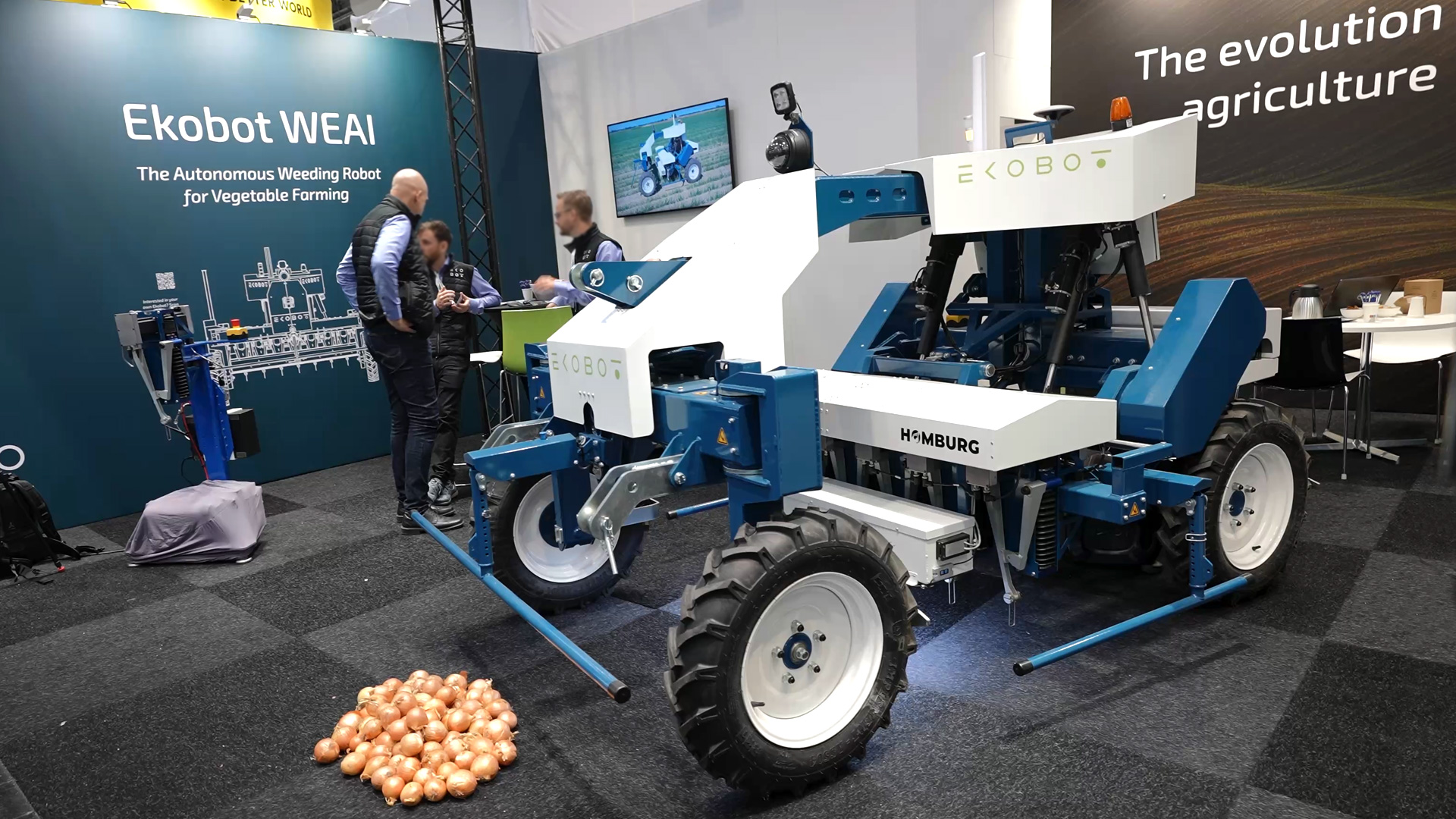Ekobot – Autonomous field robot for sustainable vegetable cultivation stands for an autonomous field robot that performs weeding and sowing in vegetable cultivation completely mechanically and emission-free. The system is AI-supported, recognizes crops precisely, and replaces time-consuming and labor-intensive manual work, especially in organic farming. Developed for row crops such as onions and, in the future, carrots or beetroot, the autonomous field robot responds specifically to the requirements of sustainable vegetable cultivation. Ekobot thus demonstrates how automation, precision, and organic farming can be meaningfully combined.
The Swedish company Ekobot develops autonomous robots that are set to revolutionize vegetable cultivation. The system takes care of weeding and sowing in the field – around the clock, emission-free and with the utmost precision. This technology offers a sustainable alternative to labor-intensive manual work, especially for organic farms, and frees up time for other tasks on the farm.
Ekobot is presenting itself to an international audience for the first time at Agritechnica. For the team, the trade fair is an opportunity to get to know farmers and dealers personally – the company's two key target groups. The focus is on exchanging ideas with practitioners, as the requirements for autonomous systems vary greatly depending on the crop, region, and farm size. There is great interest in automated field robots, especially in organic farming, where manual labor has been indispensable until now.

The Ekobot is designed for precision vegetable cultivation and automatically takes care of weeding and sowing. With the help of AI, camera, and sensor technology, it reliably recognizes plants and weeds, works independently and purely mechanically—without chemical agents. The electrical system with replaceable batteries combines sustainability with efficient field work.
Ekobot deliberately relies on mechanical processes and avoids the use of laser or electrical systems. This decision is based on the conviction that mechanical work comes closest to the natural, manual activity of humans. In a sense, the robot imitates classic manual labor – only automated, more precise, and without fatigue.

Development began with what is probably the most challenging crop for image recognition: onions. Their narrow leaves and irregular structure pose a major challenge for artificial intelligence. This demanding environment helped to optimize the software and develop robust models for plant recognition. Ekobot is now planning to expand to other crops such as beetroot, chicory, sugar beet, and carrots. The focus remains on row crops, where precise positioning is crucial.
Organic farms benefit particularly from the technology. It replaces laborious manual work in weed control and prevents yield losses due to time delays. The Ekobot can be used at any time, works independently, and operates around the clock. It thus solves a central problem of organic farming – the shortage of labor. Automation increases efficiency and planning reliability without compromising sustainability. Its use is also already in preparation for conventional farms.